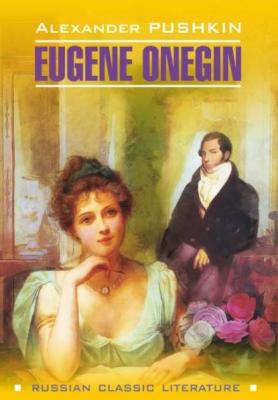ТОП просматриваемых книг сайта:
Евгений Онегин / Eugene Onegin. Александр Пушкин
Читать онлайн.Название Евгений Онегин / Eugene Onegin
Год выпуска 0
isbn 978-5-9925-1230-4
Автор произведения Александр Пушкин
Жанр Русская классика
Издательство КАРО
The voice of jealousy is drowned.
XXVI
In my young days of wild delight
On balls I madly used to dote,
Fond declarations they invite
Or the delivery of a note.
So hearken, every worthy spouse,
I would your vigilance arouse,
Attentive be unto my rhymes
And due precautions take betimes.
Ye mothers also, caution use,
Upon your daughters keep an eye,
Employ your glasses constantly,
For otherwise – God only knows!
I lift a warning voice because
I long have ceased to offend the laws.
XXVII
Alas! life’s hours which swiftly fly
I’ve wasted in amusements vain,
But were it not immoral I
Should dearly like a dance again.
I love its furious delight,
The crowd and merriment and light,
The ladies, their fantastic dress,
Also their feet – yet ne’ertheless
Scarcely in Russia can ye find
Three pairs of handsome female feet;
Ah! I still struggle to forget
A pair; though desolate my mind,
Their memory lingers still and seems
To agitate me in my dreams.
XXVIII
When, where, and in what desert land,
Madman, wilt thou from memory raze
Those feet? Alas! on what far strand
Do ye of spring the blossoms graze?
Lapped in your Eastern luxury,
No trace ye left in passing by
Upon the dreary northern snows,
But better loved the soft repose
Of splendid carpets richly wrought.
I once forgot for your sweet cause
The thirst for fame and man’s applause,
My country and an exile’s lot;
My joy in youth was fleeting e’en
As your light footprints on the green.
XXIX
Diana’s bosom, Flora’s cheeks,
Are admirable, my dear friend,
But yet Terpsichore bespeaks
Charms more enduring in the end.
For promises her feet reveal
Of untold gain she must conceal,
Their privileged allurements fire
A hidden train of wild desire.
I love them, O my dear Elvine[14],
Beneath the table-cloth of white,
In winter on the fender bright,
In springtime on the meadows green,
Upon the ball-room’s glassy floor
Or by the ocean’s rocky shore.
XXX
Beside the stormy sea one day
I envied sore the billows tall,
Which rushed in eager dense array
Enamoured at her feet to fall.
How like the billow I desired
To kiss the feet which I admired!
No, never in the early blaze
Of fiery youth’s untutored days
So ardently did I desire
A young Armida’s lips to press,
Her cheek of rosy loveliness
Or bosom full of languid fire, —
A gust of passion never tore
My spirit with such pangs before.
XXXI
Another time, so willed it Fate,
Immersed in secret thought I stand
And grasp a stirrup fortunate —
Her foot was in my other hand.
Again imagination blazed,
The contact of the foot I raised
Rekindled in my withered heart
The fires of passion and its smart —
Away! and cease to ring their praise
For ever with thy tattling lyre,
The proud ones are not worth the fire
Of passion they so often raise.
The words and looks of charmers sweet
Are oft deceptive – like their feet.
XXXII
Where is Onegin? Half asleep,
Straight from the ball to bed he goes,
Whilst Petersburg from slumber deep
The drum already doth arouse.
The shopman and the pedlar rise
And to the Bourse the cabman plies;
The Okhtenka[15] with pitcher speeds,
Crunching the morning snow she treads;
Morning awakes with joyous sound;
The shutters open; to the skies
In column blue the smoke doth rise;
The German baker looks around
His shop, a night-cap on his head,
And pauses oft to serve out bread.
XXXIII
But turning morning into night,
Tired by the ball’s incessant noise,
The votary of vain delight
Sleep in the shadowy couch enjoys,
Late in the afternoon to rise,
When the same life before him lies
Till morn – life uniform but gay,
To-morrow just like yesterday.
But was our friend Eugene content,
Free, in the blossom of his spring,
Amidst successes flattering
And pleasure’s daily blandishment,
Or vainly ’mid luxurious fare
Was he in health and void of care? —
XXXIV
Even so! His passions soon abated,
Hateful the hollow world became,
Nor long his mind was agitated
By love’s inevitable flame.
For
Elvine, or Elvina, was not improbably the owner of the seductive feet apostrophized by the poet, since, in 1816, he wrote an ode, “To Her,” which commences thus: “Elvina, my dear, come, give me thine hand,” and so forth.
The milkmaid from the Okhta villages, a suburb of St. Petersburg on the right bank of the Neva chiefly inhabited by the labouring classes.

